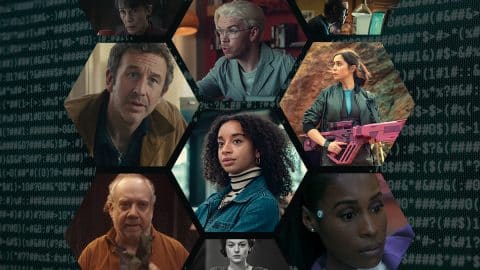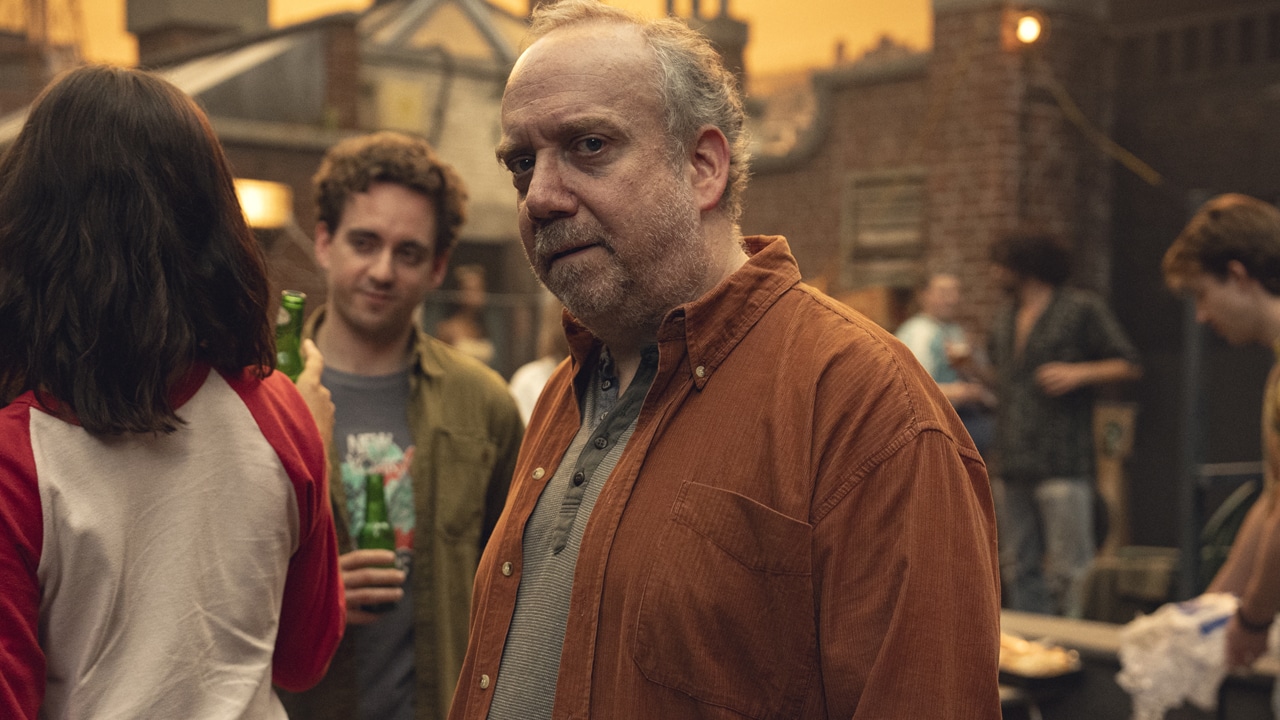
Picture: Netflix
Black Mirror fans rejoice! The anthology series is back for its seventh season. From more dark, technological horror, to the show’s first-ever sequel, this season is a great one. Behold our review!
Created by Charlie Brooker, the anthology series Black Mirror continues to grow. The seventh season is no different and actually is a return to form compared to some of the weaker recent seasons. This season features six episodes, two of them feature-length, and one of them a sequel to the iconic season 4 episode USS Callister.
Let’s jump into our reviews. Be warned, it includes spoilers!
Common People

I’d consider Common People a ‘classic’ Black Mirror episode. That’s not to say it’s samey or doesn’t offer anything new. Rather, like so many previous installments, it perfectly captures (and exaggerates, of course) the fears that society has today.
At its core, the episode commentates on the very real issue going on with subscription models — one that Netflix is one of the biggest culprits of. So how does it go about this? Well, the story follows couple Mike and Amanda, who are both deeply in love and trying for a baby. However, when Amanda suffers a medical emergency, and finds herself hospitalised with little hope of recovery, there’s only one operation that could save her.
The operation comes from a company called Rivermind, which essentially creates a backup consciousness and replaces the tissue in the brain with its own, ‘smart’ tissue. This allows Amanda to return to consciousness… but not in the way it was beforehand. Instead, Rivermind forces Mike and Amanda to subscribe to their expensive plan in order to live normally. However, like literally every subscription plan nowadays, it forces the beholder into tiers: ad tier, ad-free tier, Lux tier, and so on. Humans themselves turn into walking advertising boards, and have their freedom restricted. unless they purchase a better plan.
The story offers a deep insight into the immense dangers of subscription models, and the potential lengths companies would go to squeeze money out of healthcare. The world might not have reached this point yet, but it feels real enough to be plausible — and that’s terrifying.
What’s more, the episode also explores live streaming and the morally ambiguous (and simply vile) things that are so accessible on the internet, from silly tricks to sadistic stunts.
Overall, Common People is a good start to the season. I wasn’t blown away, but it’s so quintessentially Black Mirror, you can’t not enjoy it… and also be a little worried too.
Bete Noire

Ben Ashenden, Siena Kelly, Amber Grappy in Bete Noire
If the first episode was a classic Black Mirror episode, this one continues the trend. It’s definitely more uncanny (and significantly less plausible). But even so, it’s a relatively slow burn, intended to disturb you and make you feel uncomfortable.
Bete Noire follows Maria, an office worker who designs and formulates recipes for a top confectionery business. She’s considered one of the top workers in her field, about to introduce her new masterpiece, the miso-infused Hucklebuck, into the market.
However, when her team hires a new employee, things gradually start to change. It turns out that her new colleague, Verity Greene, is a former school classmate of Maria’s. Moreover, we soon discover that Maria used to bully Verity in school. Back then, Verity was a shy and reserved computer nerd. Now, she’s come back into Maria’s life… with a vengeance.
What follows is Verity’s slow but methodical sabotage of Maria’s career. She wields a pendant, which she can use to manipulate time and reality, altering events as they happen to twist the narrative. This plot device makes for a fascinating (if a little predictable) watch. It’s not a groundbreaking concept, but it’s fun enough.
Where this episode really shines is in its cast. Siena Kelly (Maria) delivers an outstanding performance as a (totally understandable) paranoid victim of Verity’s mind tricks. Meanwhile, Rosy McEwen is a standout performer as Verity; she’s menacing, chilling, and perfectly hateable.
Hotel Reverie
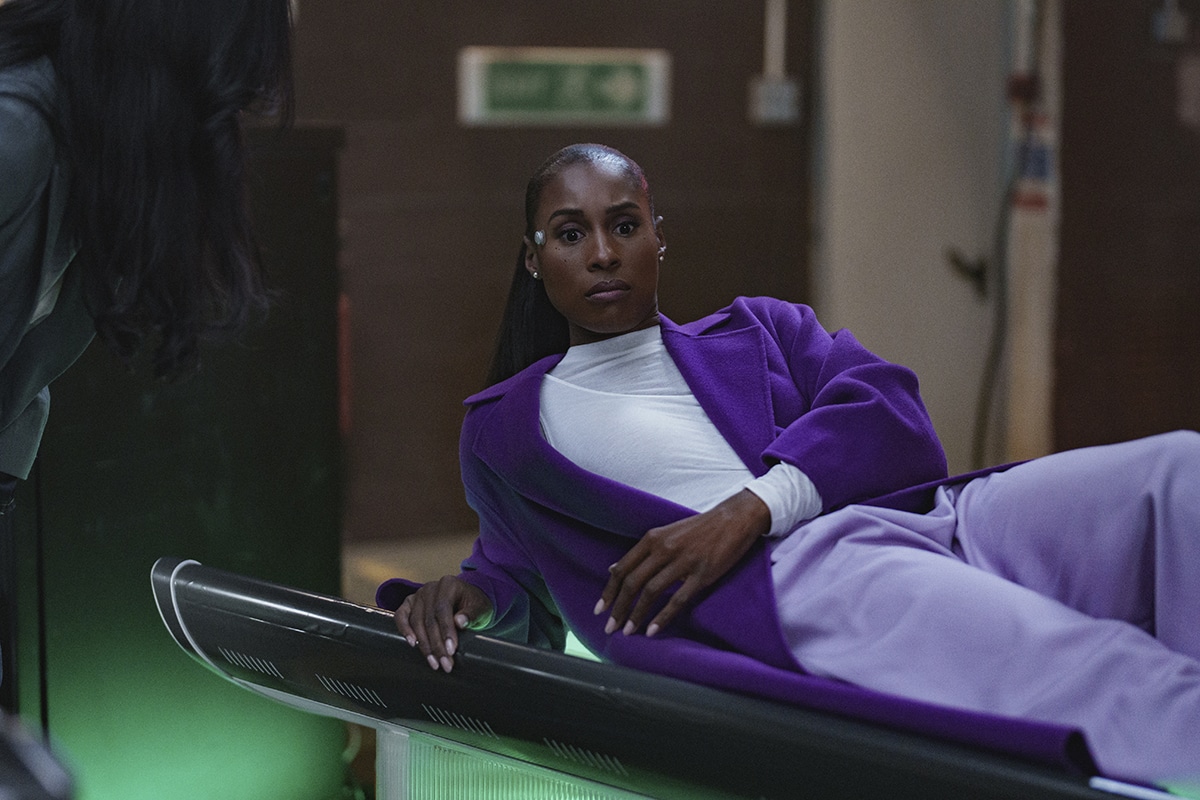
Issa Rae in Hotel Reverie – Picture: Netflix
While Black Mirror tends to focus on dark, often disturbing and distressing themes, the show occasionally tells poignant and beautiful tales, wrapped up in the chaos. As for Hotel Reverie — the second feature-length instalment of the season — we’re taken on a journey of what happens when one of the world’s top Hollywood stars is cast in an immersive retelling of a classic movie.
In Hotel Reverie, Hollywood A-list actor Brandy Friday (Issa Rae) is thrown into an ultra-immersive high-tech remake of a vintage romantic movie. Surrounded by artificially intelligent beings, including the film’s original lead 1940s movie star Dorothy Chambers (Emma Corrin), it’s not your normal acting gig. And what’s more, her job is to ardently stick to the script, for if not, she may never make it home. But when the gig becomes way too immersive to the point of romance, leaving is not an easy option.
Shot in both colour for the modern day and black-and-white for the scenes that take place inside the virtual ‘set’, the episode is a flawless descent into everything from old and new filmmaking, to forbidden love. The seamless blend between retro and futuristic is incredible. Everything about the classic film feels absolutely authentic — and yet, there’s numerous scenes that’ll have you saying “that’s so Black Mirror.”
This episode will undoubtedly go down as one of the most esteemed in Black Mirror history. There’s a slight Truman Show riff going on, with a little bit of Somewhere in Time, too. Plus, it’s really, really funny. Issa Rae especially has some absolutely golden comedic moments.
Plaything
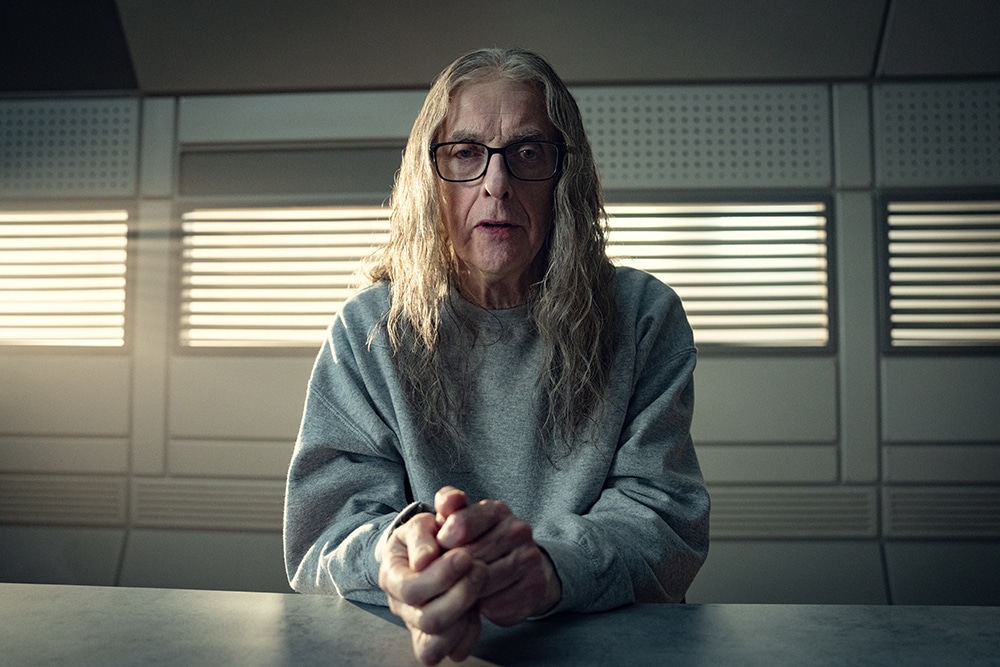
Peter Capaldi in Plaything – Picture: Nick Wall/Netflix
Plaything chronicles the history of Cameron Walker: played by Peter Capaldi in the present, and Lewis Gribben in the past.
Capaldi starts us off as an old, extremely eccentric (and objectively creepy) Walker, who’s been arrested on suspect of a murder. As police officers investigate him, they delve into his history, learning that the murder he’s linked to may be connected to a bizarre video game he was involved on during the 1990s — featuring ever-evolving, artificial life-forms.
When the episode jumps back in time, we’re reintroduced to characters from Black Mirror’s previous classic interactive episode Bandersnatch. This includes groundbreaking video game developer Colin Ritman (Will Poulter) and Tuckersoft boss Mohan Thakur (Asim Chaudhry). That said, this is by no means a continuation of Bandersnatch — we’re talking largely cameo appearances. Even so, the main plot device comes from Ritman, whom our protagonist steals a copy of his game ‘Thronglets’ from.
On his own computer, Walker becomes obsessed with the digital entities known as Throngs. These cute, innocent-looking 16-bit characters have fully-fledged minds of their own, and they learn continuously, much like modern day AI like ChatGPT, for instance. Naturally, Black Mirror takes things up a notch. And after Walker gets addicted to LSD, he becomes even more infatuated by the world of Thronglets. The hallucinogenic drugs allow him to communicate directly with the digital beings, who demand increasingly disturbing — and dangerous — things from him.
As Walker spends more time with the Throngs, he sees them more and more as rational, conscious people, so much that he gets overly protective of them — not least when his mindless drug dealer frolics in destroying their seemingly innocent world.
This episode is another hit for the season. I wouldn’t say it’s the best instalment, but it’s more than entertaining enough. It presents a unique mystery, masterfully played out by both Peter Capaldi and Lewis Gribben. So far this season, we’ve had commentary on the every-annoying subscription models, and now the dangers of AI, specifically through the unique lens of video game characters. It’s easy to see how this is a highly exaggerated look into how characters from the Sims, for instance, could become sadistic.
Eulogy
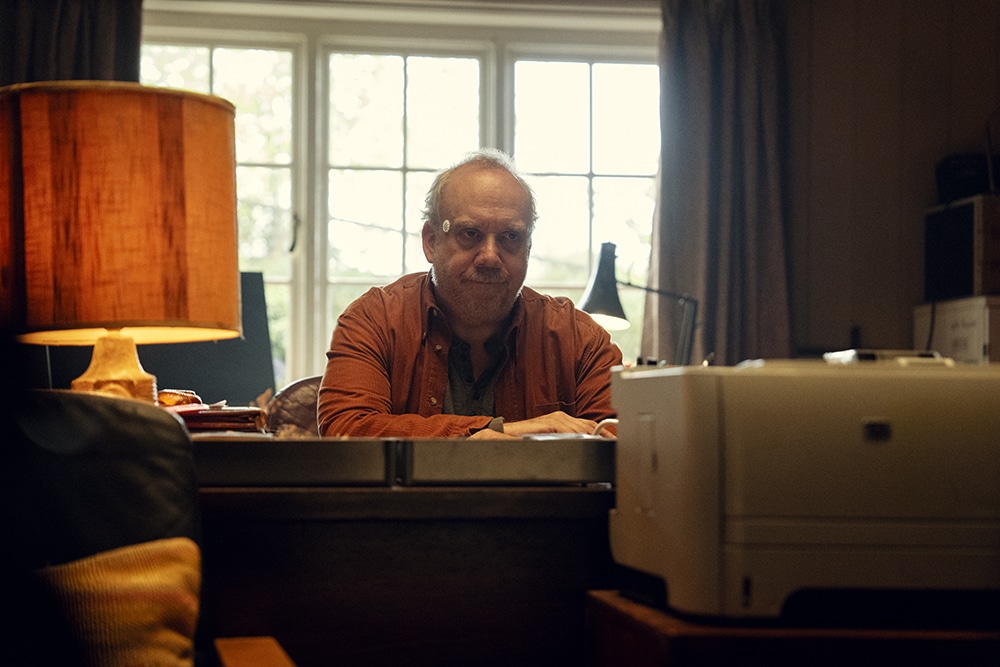
Paul Giamatti in Eulogy – Picture: Netflix
Eulogy is yet another standout episode, not only of season 7, but from the series as a whole. It’s very much the type of episode fans have been waiting for after beloved season 3 entry San Junipero. The episode follows recluse man Philip (Paul Giamatti), who lives a simple life in a cottage on the coast. Living without much contact, he’s surprised to hear his phone ring. He soon learns that a lady he used to know, Carol Hartman, has sadly passed away, and her family are seeking memory contributions for his funeral.
The memories would be compiled in an immersive memorial, allowing the beholders to quite literally enter the memories of Hartman — they wouldn’t be viewed in photographs, or on a screen, but in a fully immersive experience. Philip is initially apprehensive of the idea, but ultimately decides to go along with it. What follows is a heartfelt, highly sentimental deep-dive into his past with Carol. We traverse through entering (literally) his droves of old photographs, learning about his past with Carol; from their first meeting, to their love life and relationship over the years. They all tell a unique story, from the fun times, to the heartbreak.
The performance of two-time Academy Award–nominee Paul Giamatti is simply marvellous. Your heart goes out to Philip, a truly heartbroken man. Plus, Patsy Ferran, who plays the AI voice of the Eulogy technology, is outstanding too.
Black Mirror is one of those shows that spans a wide array of themes. While the series is perhaps most famous for its dark and highly disturbing episodes, Eulogy takes the futuristic, technologically-advanced world and creates a sentimental and emotional tale, one that stands alongside San Junipero as one of the finest episodes the series offers up.
USS Callister: Into Infinity
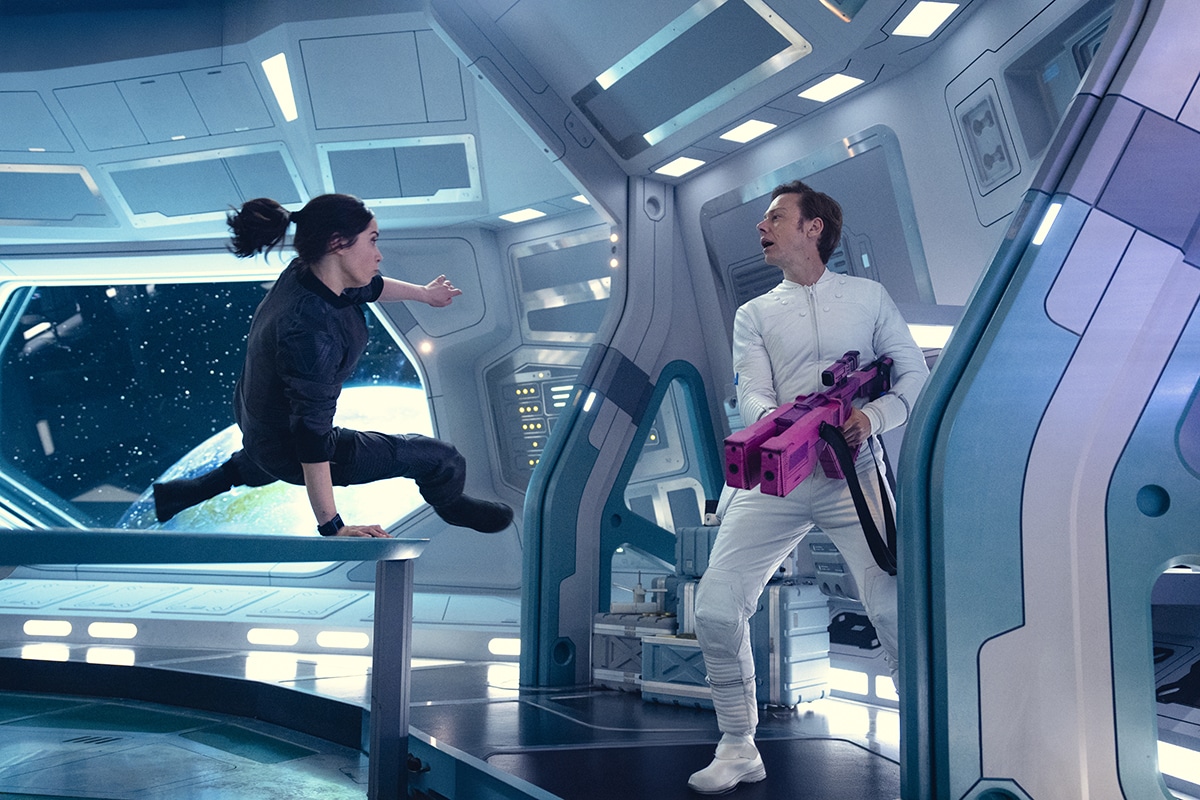
Cristin Milioti and Jimmi Simpson in USS Callister: Into Infinity
From all of season 7, the USS Callister sequel, Into Infinity, is very much the showstopper. It was the most anticipated episode, and it featured prominently in the season’s marketing campaign. I’m glad to say that it not only lives up to the hype, but it exceeds expectations in every way imaginable. It’s bigger, better, grander, longer… the list goes on.
So what’s it all about? Well, following the death of sadistic programmer Robert Daly in the first instalment, the crew of the USS Callister — commanded by Nanette Cole (Cristin Milioti) — have found themselves out in the online world of Infinity. However, they’re not just any players; the actions they make have very real consequences. That’s to say, there’s no respawning. The team essentially becomes scavengers, scouring the vast universe for players to rob of credits. Realising they can’t live focused solely on survival, they attempt to copy themselves into an empty, safe universe. But as always, achieving it is much easier said than done.
Naturally, their scavenging raises concerns in the real-world Infinity headquarters, and prompts a full investigation into their spoils from none other than Cole herself.
The whole storyline feels like a mix of Ready Player One, Tron, and dare I say even a touch of Severance. You’ve got the clash between reality and virtual reality. It takes the LitRPG genre and adds some Black Mirror magic, creating a story unlike anything you’ll see on television. It’s an unpredictable ride, filled with mind-bending twists and turns, but it doesn’t lack on comedic beats either.
The episode has more than a few standout performances. For instance, Cristin Milioti shines as both her real-life Nanette Cole, and her USS Callister captain counterpart. But also, the expanded role of Jimmi Simpson as James Walton was a particularly good addition. And, of course, the (virtual) return of Robert Daly himself.
The writers utilised the sequel to continue world-building, particularly by expanding on the lore of Infinity. One of my personal favorite elements was when the episode stepped back from action and focused on the relationship of the game’s creators: Robert Daly and James Walton. Everything ties together seamlessly. And while there might be a few tiny plot holes (like every other space sci-fi out there), I’m more than willing to forgive them.
Even more so than the first instalment, this sequel has pop culture references galore. You’ll notice nods to Star Wars and Star Trek (no shocks there), and even a cameo from a popular gaming YouTuber.
Into Infinity could’ve quite easily been a Black Mirror spinoff series — creator Charlie Brooker has actually said as much. There’s so much story packed into the feature-length 90-minute run time. It’s an epic, high-octane joyride from start to finish!
Black Mirror has been a 5-star series from the very start, and season 7 continues its winning streak. It’d be wrong not to give it another 5-star rating, wouldn’t it?


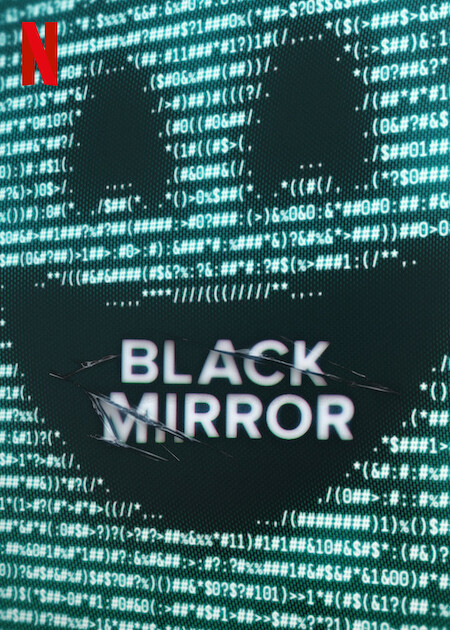 Rating: TV-MA
Rating: TV-MA